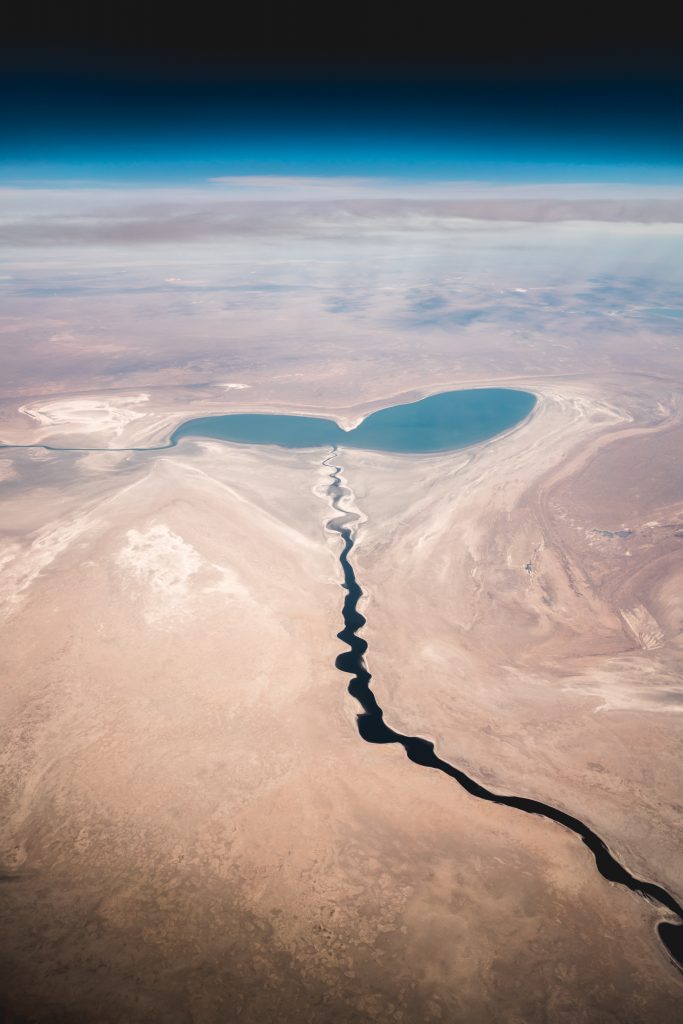Metaphors are language devises we use to create a picture that explains something by referring to something else. For example, the phrase “an ocean of ideas,” uses the word “ocean,” with the hope that the pictures of oceans most people will form in their minds convey that there are a very large number of ideas. Metaphors can make language fun and memorable. The first time I heard the song Set Fire to the Rain by singer-songwriter Adele, the metaphor grabbed me, and it encouraged me to like the song.
In their 1980 classic book, Metaphors We Live By, George Lakoff and Mark Johnson explain that metaphors play a powerful, although often unrecognized, role in our thoughts and behaviors. Thus, metaphors can encourage people to appreciate the serious problems caused by human impact on the oceans and can motivate people to act on behalf of the oceans and their inhabitants.
A Phrase That Seems Impossible
I heard an ocean-friendly metaphor recently on an episode of the Live Wide Awake podcast with Stephanie Dickson. One of Steph’s guests was Doug Woodring of the Ocean Recovery Alliance (ORA) , which focuses on creating business opportunities to reduce plastic pollution. In 2018, Doug won the Prince’s Prize for Innovative Philanthropy from Prince Philip of Monaco. Also, ORA has run the Hong Kong iteration of the Ocean Film Festival.
“Dried Oceans” is the attention-grabbing metaphor Doug uses to describe what is happening to oceans. This metaphor works for me because just as “setting fire to the rain” seems impossible, so too does it seem impossible that the oceans could be dry. The Pacific Ocean alone is estimated to contain 707.5 million km3 of water. Quora hosted an amusing and imaginative discussion of how long it would take to drink the Pacific Ocean. Believe it or not, NASA investigated what the Earth would look like if all the oceans were drained and made a video of this hypothetical scenario.
And while the analogy might seem impossible, a dry ocean does have real life examples. The Aral Sea, a body of water between Kazakhstan, Uzbekistan, and Turkmenistan, was once the fourth largest lake in the world. However, due to a diversion project started in the 1960s to irrigate crops around the region, the freshwater basin was completely dried, and the fisheries and communities that depended upon it suffered greatly as a consequence. NASA’s Earth Observatory provides a year by year time-lapse of the drier Aral Sea – a troubling example of water resource mismanagement and the complications that can follow.
Dried Oceans In Context of Marine Life and Pollution
Returning Doug’s metaphor, what does he mean by “dried oceans”? In short, the good things, such as the fishes and coral reefs, are being taken out of the oceans, only to be replaced by all manner of pollution, in particular, plastic pollution. As a result, oceans are now burdened with at least 415 dead zones.
Doug suggests we “think of a clear glass of water that has nothing in it. And, you’re happy about that, because you want to drink that nice clean water. But, think of the ocean as that same clean glass, totally empty of life.” To bring the oceans back to life, Doug and his Ocean Recovery Alliance recommend Marine Protected Areas (MPAs) and an end to subsidies to huge fishing fleets that use military style equipment. In the podcast, Doug cites the example of Hong Kong banning bottom trawling, with the result that aquatic populations rebounded.
Would the dried oceans metaphor work with people you know? It may provide a helpful reminder that if swift action is not taken, we soon will be unable to enjoy the abundance of life that furnishes humans with activities including snorkeling and diving. Thus, an ocean “dried” of life is detrimental to humans, too.
